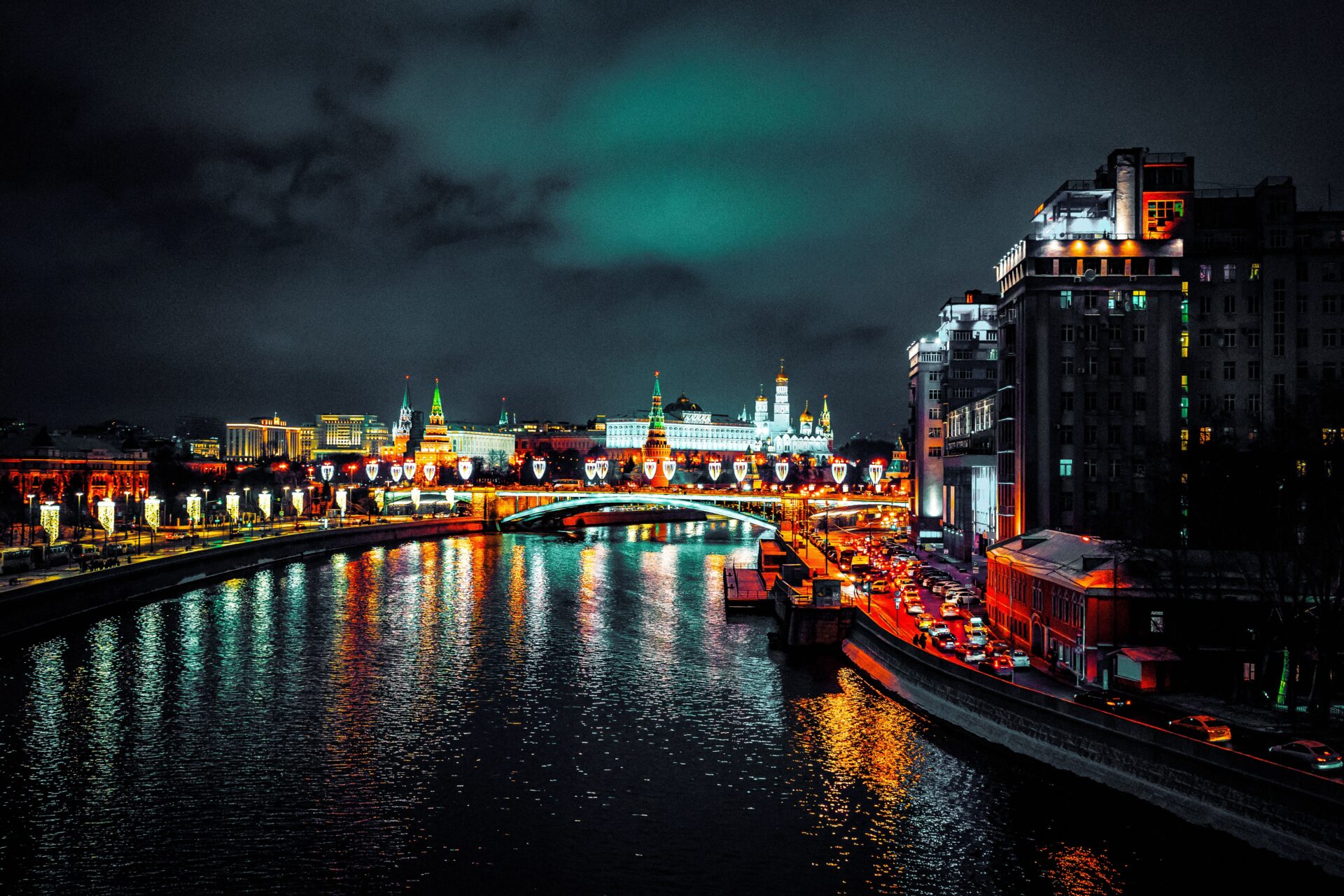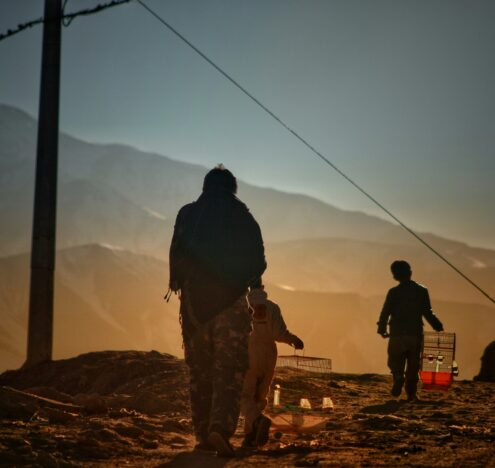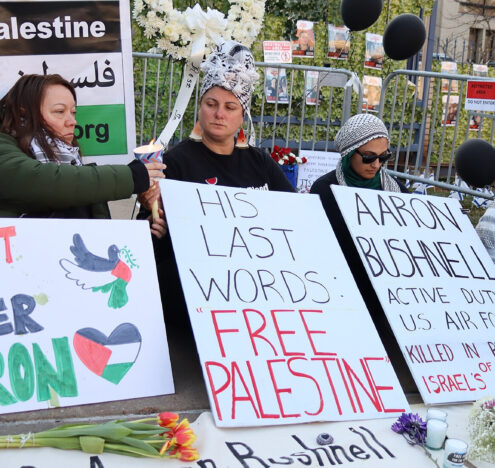One of the greatest challenges for governmental and civil society actors today is stopping serious human rights violations or preventing them altogether. In these efforts, the imposition of highly targeted sanctions like those stipulated under the Global Magnitsky Act plays an increasingly prominent role.
Experts consider relatively new sanctions regimes, like “horizontal” (thematically grouped “human rights,” “terrorism,” etc.) and highly targeted or smart sanctions, to be more effective than more general sanctions mechanisms because they are aimed at individual perpetrators rather than a whole country. However, so far, the legislation has not had the decisive impact its creators and supporters envision.
WHAT IS THE GLOBAL MAGNITSKY ACT?
First adopted in the United States in 2012, the law applies globally since late 2016, allowing the US government to impose sanctions against human rights violators regardless of where they are occurring. So far, 35 countries have adopted some type of Magnitsky mechanisms, including the 27 member countries of the European Union.
The legislation derives its name from the Russian accountant Sergei Magnitsky who was jailed and brutally killed in Russia in 2009.Magnitsky’s employer and main proponent of the law, the British-American businessman Bill Browder, has led a tireless international campaign to bring Magnitsky’s murderers to justice.
Most versions of the Global Magnitsky Act impose two types of sanctions: Travel and visa bans and asset freezes. Supporters argue that these restrictions provide an important deterrent effect, which means they supposedly prevent human rights abuses from reoccurring.
WHOSE HUMAN RIGHTS?
Judging by sheer numbers, the legislation has certainly made its mark. Since the Global Magnitsky Act first came into full force in 2017, the four major jurisdictions — the United States, Canada, the United Kingdom, and the EU — have sanctioned no less than 760 individuals and entities, in 46 countries on five continents for serious human rights abuses. However, the law clearly does not work exactly as advertised. As with most human rights legislations involving sovereign entities, the reality on the ground remains more complex than mere statistics suggest.
Until some of the current gaps can be addressed, the greatest impact of the Global Magnitsky Act may well be psychological, especially through the public visibility it bestows upon marginalized victims of human rights abuses.
Activists are concerned that when it comes to the designation of Magnitsky sanctions, not all human rights violations appear to be created equal. The current war in Ukraine and the civil protests in Iran have essentially usurped global attention, with other sanctions applications being pushed to the sidelines.
A November 2022 impact study issued jointly by Human Rights First, REDRESS, The Raoul Wallenberg Centre for Human Rights (RWCHR), and Open Society Foundations found that virtually no sanctions have been imposed for violations committed against Indigenous and LGBTQ communities or people with disabilities. Human trafficking, too, has essentially eluded current sanctions designations. Few acts of domestic and sexual violence committed against women and girls have resulted in formal listings. They make up less than 10% of Magnitsky listings in the four major jurisdictions.
Some critics also question the intent behind the Magnitsky sanctions instrument altogether. In a recent hearing before the Canadian Parliament, lawmakers voiced concerns that the Justice for Victims of Corrupt Foreign Officials Act — as the Magnitsky Act is called in Canada — could be perceived as little more than a “geopolitical revanche mechanism,” directed mainly against Russia. This may partly account for the low adoption rate of the legislation among southern hemisphere states, many of whom worry about alienating powerful countries like Russia or China.
HOW EFFECTIVE IS THE ACT?
Even for those who do make the list, there are concerns as to what impact the sanctions actually have. While a rigorous review process exists for placing individuals on a Magnitsky sanctions list, what happens next is far less clear or uniform. In theory, the consequences for sanctioned individuals are severe. They are unable to travel to the jurisdictions that imposed the sanctions, plus they cannot engage in the international financial system.
However, efforts to monitor compliance are severely hampered by staff shortages, lack of funds, and little multilateral coordination. As a result, many sanctioned individuals find ways to circumvent even strict financial restrictions through front companies and other proxies. Also, many low-to-midlevel officials do not hold significant assets abroad or rarely travel internationally. In practice, this means that they may not be as susceptible to pressure to stop them from committing serious abuses.
Sanctions experts agree that the “naming and shaming” of human rights violators alone can be significant. Still, some of the highly touted deterrent effects of the Magnitsky Act have not materialized.
One of the most striking examples is the case of Russian official Dmitri Komnov. As head of pre-trial detention at Moscow’s Butyrka Prison in 2009, he repeatedly refused to provide urgently-needed medical care to Magnitsky. The United States, Canada, and the United Kingdom have imposed a barrage of sanctions against the Russian government and Komnov personally, using various Magnitsky Act instruments. The EU is about to follow suit. Despite this fact, Komnov has now been put in charge of another prison facility — Moscow’s Vodnik SIZO-5 — where the Russian dissident Vladimir Kara-Murza is imprisoned on trumped-up charges of high treason. It has created the disturbing scenario that Kara-Murza finds himself at the mercy of the same ruthless official as Magnitsky. It also means that the sanctions have so far failed to move Russian authorities to dismiss him from his job or to hold him accountable for his crimes.
To forestall such outcomes, civil society groups have urged governments to widen the scope of sanctions dramatically, to achieve maximum impact. In April 2022, the Anti-Corruption Foundation (FBK), headed by jailed Russian opposition politician Alexei Navalny, issued a list of 6,000 Russian officials who should be sanctioned because Russian President Vladimir Putin relies on this coterie to stay in power. However, FBK is seeking the designations mostly under the EU Russia-related sanctions regimes, not under Magnitsky sanctions mechanisms. The decision highlights a central problem with the EU Global Human Rights sanctions regime: It does not include an anti-corruption framework which would broaden the reach of the legislation considerably.
Until some of the current gaps can be addressed, the greatest impact of the Global Magnitsky Act may well be psychological, especially through the public visibility it bestows upon often marginalized victim groups of human rights abuses. This includes, among others, ethnic and religious minorities like the Yazidi and Christian communities in Iraq or the Muslim Uyghurs, ethnic Kazakhs and Kyrgyz enclaves in China. The Magnitsky mechanism undoubtedly has created a whole new level of awareness among all actors — perpetrators, victims, lawmakers, journalists, law enforcement and government officials, politicians, and also the general public. This enhanced visibility may, in fact, constitute one of its greatest accomplishments to date.
With the UN system in urgent need of reform and the notoriously slow pace of international justice mechanisms, the Global Magnitsky Act has the potential of pointing the way in the crucial fight against impunity and to seek accountability for serious human rights violators. For that to happen, governments need to broaden the scope of adoption of Magnitsky-type legislations, which remains a serious challenge. In the meantime, all jurisdictions must quickly improve internal and multilateral coordination, and, most importantly, provide greater financial and technical resources for monitoring and enforcement.





















